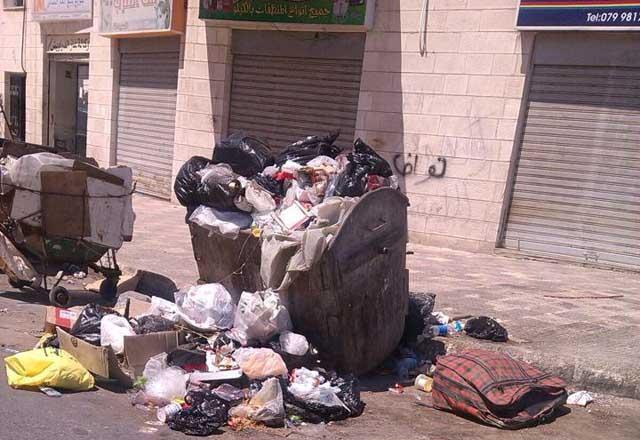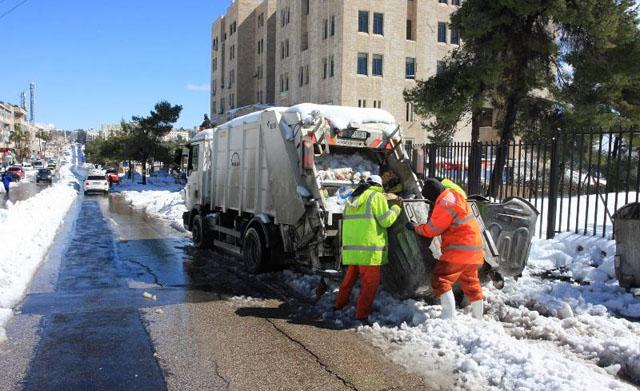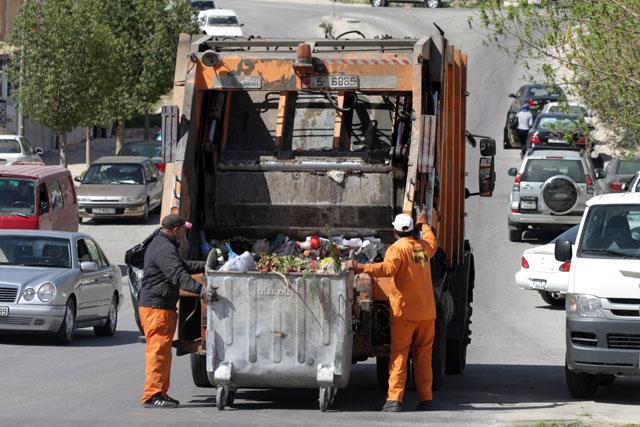You are here
Amman household waste rises by 8% in Ramadan — municipality
By Hana Namrouqa - Jul 16,2014 - Last updated at Jul 16,2014
AMMAN — The Greater Amman Municipality (GAM) on Wednesday reported an 8 per cent increase in household waste production during Ramadan.
The increase in waste generation during the fasting month is linked to the change in people’s consumption patterns and lifestyle, accompanied by the return of expatriates to spend Ramadan here, Emad Dmour, GAM’s districts and environment executive director, said.
Dmour noted that waste production increases by 20 per cent on weekends.
“GAM’s sanitation workers collected 47,000 tonnes of domestic waste since the start of Ramadan. They collect 2,700 tonnes daily and 3,000 tonnes on Saturdays,” he told The Jordan Times over the phone.
Garbage trucks normally deal with a daily load of 2,500 tonnes and 2,800 tonnes on Saturdays, but the figures have risen during Ramadan. During the same period last year, sanitation workers collected 2,650 tonnes daily and 3,000 tonnes on Saturdays, according to GAM.
Dmour noted that GAM will increase the working hours of its sanitation employees during the last 10 days of Ramadan to keep the city clean, when commercial activities increase in preparation for Eid Al Fitr (the Muslim feast marking the end of fasting).
“Street cleaners and road sweepers will continue to operate after iftar,” he said.
In the capital, a fleet of 190 trucks, compactors and vehicles collect and handle garbage, according to Dmour.
Following collection, garbage is then taken to a station in east Amman before being transported in large containers to the Ghabawi Landfill, where it is buried.
Situated some 25 kilometres east of Amman, the Ghabawi Landfill serves the capital and the central region.
Established in 2003 at a cost of JD16 million, the 3,000-square-metre landfill has the capacity to handle 2,500 tonnes of garbage per day.
Related Articles
Sanitation workers collected over 15,000 tonnes of household waste during the Eid Al Fitr holiday, according to the Greater Amman Municipality (GAM), which reported a notable increase in waste production.
The Greater Amman Municipality (GAM) is operating at full force to collect garbage and broken branches after the weekend snowstorm impeded the work of sanitation workers, a municipality official said on Sunday.
AMMAN — Sanitation workers in the capital are operating around-the-clock to cope with the 20 per cent rise in household waste produced durin














